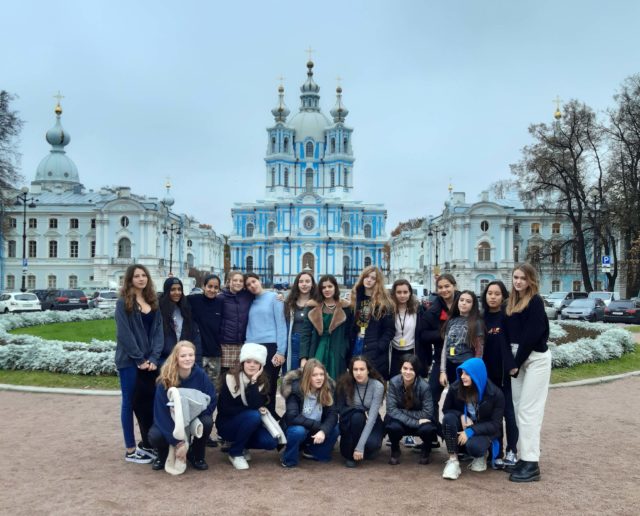Modern Languages
In today’s society, it is impossible to overstate the importance of modern languages.
What we study
The A level examinations consist of three units, all sat in the summer of the VIII. The oral exams typically include a presentation on a theme of the candidate’s choice (otherwise referred to as an Independent Research Project, or IRP) followed by an open discussion. Some also include a stimulus for discussion on the day. The IRP gives the students the opportunity to take ownership of their learning, do research on a topic of their choice, relevant to the culture of the language studied, and showcase their thorough knowledge as well as their analytical and critical thinking skills. The second paper includes listening, reading, and translation into and out of the language. The final paper includes one or two essays on two literary texts or a film and a literary text.
At St Paul’s learning a language is much more than the final exam; we investigate a range of topical issues, current affairs, and the cultural wealth of each language, all the while paying careful attention to mastering the intricacies of the idiom and encouraging students to aim for confidence, accuracy and fluency in a second or third language. The courses suit both those wanting to study a language further and those seeking a complementary subject to their other choices.
Beyond the curriculum
VII students have instigated various cultural societies that are driven by their own interests, for example German, Hispanic and Italian culture clubs. The modern languages magazine The Foreigner is the central focus of the year, edited and published by linguists in the Senior School. They also assist students in younger years in societies like Chineasy and Kirillitsa. Visiting speakers from a range of eminent institutions come to deliver specialist lectures on a variety of subjects in all the languages we offer including linguistics and new ab initio languages. Essentially, we seize every opportunity to use our languages and encourage the students to do the same!
London is the best city in the world to live in when seeking cultural input from other countries. There are a wealth of exhibitions, shows and plays and dedicated language institutes and embassies who are only too happy for students to visit (Instituto Cervantes, Goethe Institut, l’Institut Français). In recent years we have participated in various regional and national competitions such as the HSBC Chinese Speaking Competition, French debating, Hispanic theatre and German essay writing.
At this level, it is also crucial for students to start seeking out individual opportunities to work, travel and study, and the department can provide support and information on all of these. Many students are advised on individual travel projects that they can tailor to their own interests.
Where it might lead
In addition to studying the chosen language further at university, adding in even more unusual languages ab initio, and pairing a language with another humanity, there are now more opportunities than ever before to combine language study or a year abroad with absolutely any other subject. Click here for inspiration! Those who have studied pure languages at university have found them useful in virtually any field, from journalism to finance to medicine.

Qualification
AQA A level (French, German, Spanish)
Pearson Edexcel A level (Italian, Mandarin Chinese, Russian)
Mode of Assessment
100% examinations